For a little over a year, I have had a chimpanzee trapped in my mind. Finally, she is breaking free.
Sitting in my tenth grade chemistry class talking to my two tablemates about anything but chemistry, we found ourselves brainstorming concepts for new musicals. My mind kept circling back to primates. A monkey, perhaps? A “Curious George” musical—except something newer that would not require obtaining rights to write. No, not a monkey. A chimpanzee. A brilliant, colorful, singing chimpanzee. Her name? Nova.
Uniquely Nova: The Musical, with music by Sydney S. ’25 and a script by me, follows a 14-year-old girl named Nova. To the audience, Nova is obviously nonhuman, but in her world, she is simply a girl starting high school after being homeschooled her entire life. With school comes new friends, including sisters Ainsley and Skippy, but also bullies like Joanna. Nova loves making her friends laugh and is valued by her classmates for her aptitude for math.
Despite the joy that comes from her high school journey, nothing is quite right. Nova becomes awfully overwhelmed which prompts a visit to the doctor, who reveals that Nova has been a chimpanzee this entire time. The news is unbearable, and the devastation that follows will (hopefully) leave audiences shocked, touched, and humored.
Almost immediately after attaching myself to the chimpanzee musical idea, I started writing. In my eponymous “Nova journal,” I made countless charts and diagrams mapping out multiple plot points and character arcs. While typing out the story, I made sure to leave intentional holes in the script that would eventually be filled with Sydney’s songs. The very first draft of the show was just about 60 pages long. The current rendition is over 100.
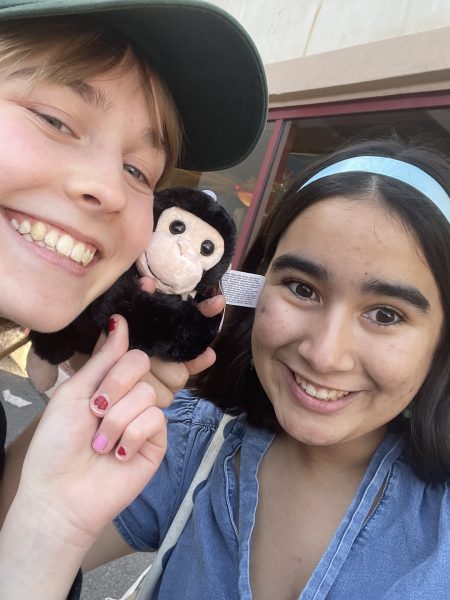
After finishing the first draft, I sent it to Sydney and planned our first April meeting to discuss the script and plan the songs. Throughout the summer, I continued updating the script, and Sydney started sending me some songs. Each new song I heard brought more and more life to the show, and many of them made me cry upon first listen.
Sometime during my family’s annual trip to Puerto Rico, Sydney sent me a song titled “Kinda Perfect.” It is a lullaby-esque song that takes place in one of Nova’s dreams. Right away, the song became a favorite of mine, and still is, so I decided to let my parents (my greatest supporters) have a listen. They thought it was amazing and started asking me more questions about the play, because prior, I had never given them more than a short synopsis and was quite closed off about the whole process. I answered a few of their questions… and then started crying uncontrollably. It was too much. Too much pressure, too many insecure thoughts racing through my head. What if I had made something that my own parents wouldn’t like? What if they thought it was bad? To this day, I am yet to let my parents read the script.
By the end of the summer, I felt like my script reached a point of contentment. I knew that in order for it to continue improving, it needed more eyes. I was terrified out of my pants, but Sydney and I decided to share our materials with Director of Theatre Mr. Brandon Kruhm to get his thoughts.
Sydney and I are both avid participants in Westridge’s theatre program, so Mr. Kruhm seemed like a natural mentor figure for us. We had our first meeting with Mr. Kruhm in early October where he gave us positive and constructive feedback on our script.
Writing a script is considerably different from writing an essay or Spyglass article. For most academic writings, we are encouraged to “write like how we talk” or write in our own voices. While writing the script, I wrote in over 20 voices, including a vegan father, an ancient teacher, an 11-year-old genius, and a chimpanzee, while trying to still maintain a style unique to my writing! I often felt lost along the way and could not tell which parts seemed out of place after reading it so many times, but Mr. Kruhm was extremely helpful in finding the cracks in what he considered an already “strong” script.
We continued to communicate with Mr. Kruhm throughout the fall, and eventually felt confident enough in our show to comprehend it in a completely new way: a read through. At the end of November, Sydney and I gathered a group of theatre-loving, trusted friends to read the script together. Hearing my words out loud furthered my confidence in the show and allowed me to find more places in need of editing based on the group’s reaction and how lines were delivered.
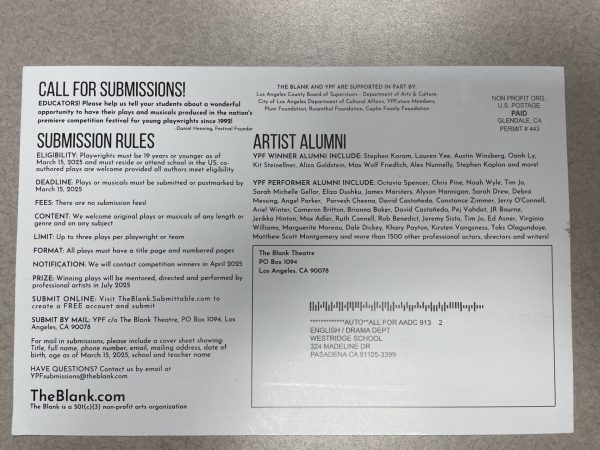
Before the read through, I was concerned about what my peers would think of the show. Although Mr. Kruhm thought the show was solid, would someone from my own age group feel the same way?
By the end of the read, however, my fears subsided as all I felt was gratitude towards my friends for assisting me. I was surprised that after we were done reading, many of them came up to thank me for letting them into the process.
Many of those friends are now currently working on Uniquely Nova in a different capacity: a staged reading. A staged reading is sort of like the culmination of a staged production—like Westridge’s Newsies and a table read—something you would do in an English class. For the final performance, the actors will have their scripts and be in costume, alongside minimal sets and some choreographed dances and scenes. Naturally, I am directing the staged reading while Sydney is the music director.
Among writing the longest script I have ever crafted, sharing my work with many friends and mentors, and getting to direct my own story, the most valuable and rewarding part of this process has been getting to work with Sydney. From FaceTiming countless times to talk about new songs or sharing ideas about what we are trying to convey with the show, I have never had another experience working creatively with someone on such a deep level.
When I first asked Sydney if she would be interested in writing a musical, she was eager to jump right in without even reading the script. We always lift each other up whenever we doubt our work, and always celebrate each other’s achievements. Asking Sydney to work with me was an amazing decision, as her music really brings the script to life.
At the end of the show, Nova, along with the other cast members, sings a song titled “Different,” a song where Nova, surrounded by all the people who love her, sings about how despite being a chimpanzee among humans, she still feels accepted. Though she no longer sees herself as a typical 14-year-old girl, she still loves herself for who she truly is and feels like she belongs.
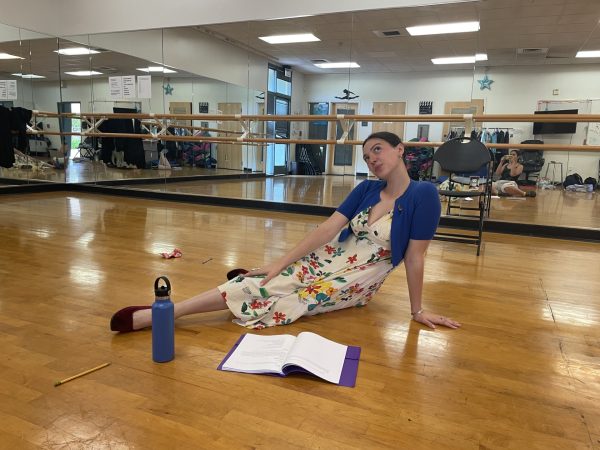
As rehearsals progress, I feel more and more like I am giving my show away to the people around me. Currently, I’m giving it away to my actors to put into their bodies and make it their own. Soon, I will give away to audiences to enjoy and interpret. The show will always be mine, but it will never be as private as it was when I was sitting hunched over my laptop, shielding it from the view of my family while typing out the initial draft. It can be scary to set it free for others to judge, but it is nice to think that my words could have the same effect on others that they did on myself.
This process of constant writing, reading, and now performing has helped me step into myself and all that I am—a creative, intelligent, and talented writer and performer—but also accept many of my challenges like understanding certain social cues or trying not to think about my musical in class. Nova’s bravery to sing out about her differences inspires me to open up to my friends about my own. Watching Uniquely Nova come to life has helped me further discover “Uniquely Valentina.”
If you are interested in seeing Uniquely Nova: The Musical come to life with your own two eyes, click here to reserve a ticket to the staged reading on May 23 at 4:00 p.m. and 6:30 p.m.




























![Dr. Zanita Kelly, Director of Lower and Middle School, pictured above, and the rest of Westridge Administration were instrumental to providing Westridge faculty and staff the support they needed after the Eaton fire. "[Teachers] are part of the community," said Dr. Kelly. "Just like our families and students."](https://westridgespyglass.org/wp-content/uploads/2025/03/dr.-kellyyy-1-e1748143600809.png)






















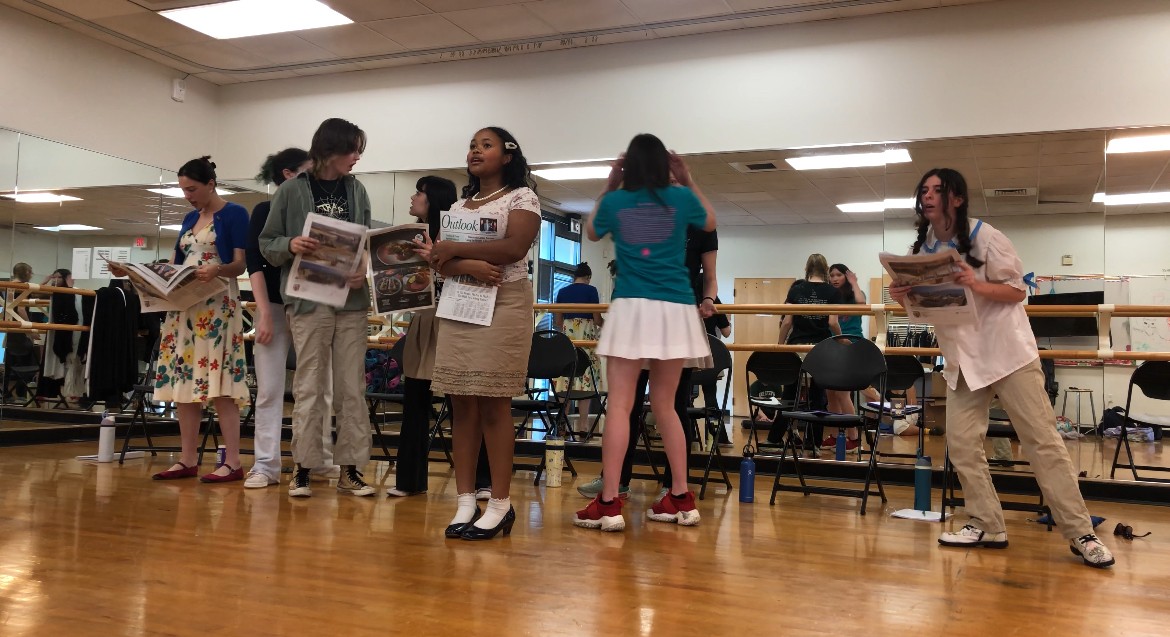
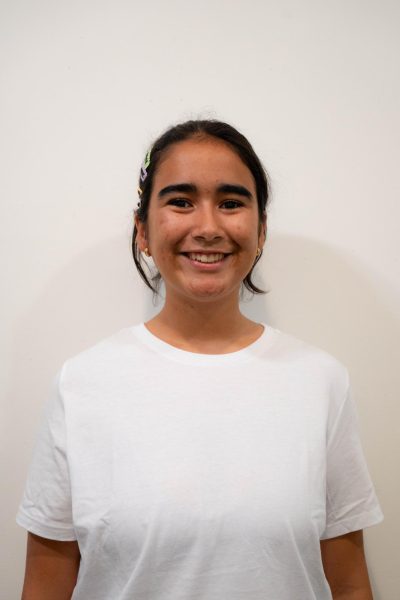

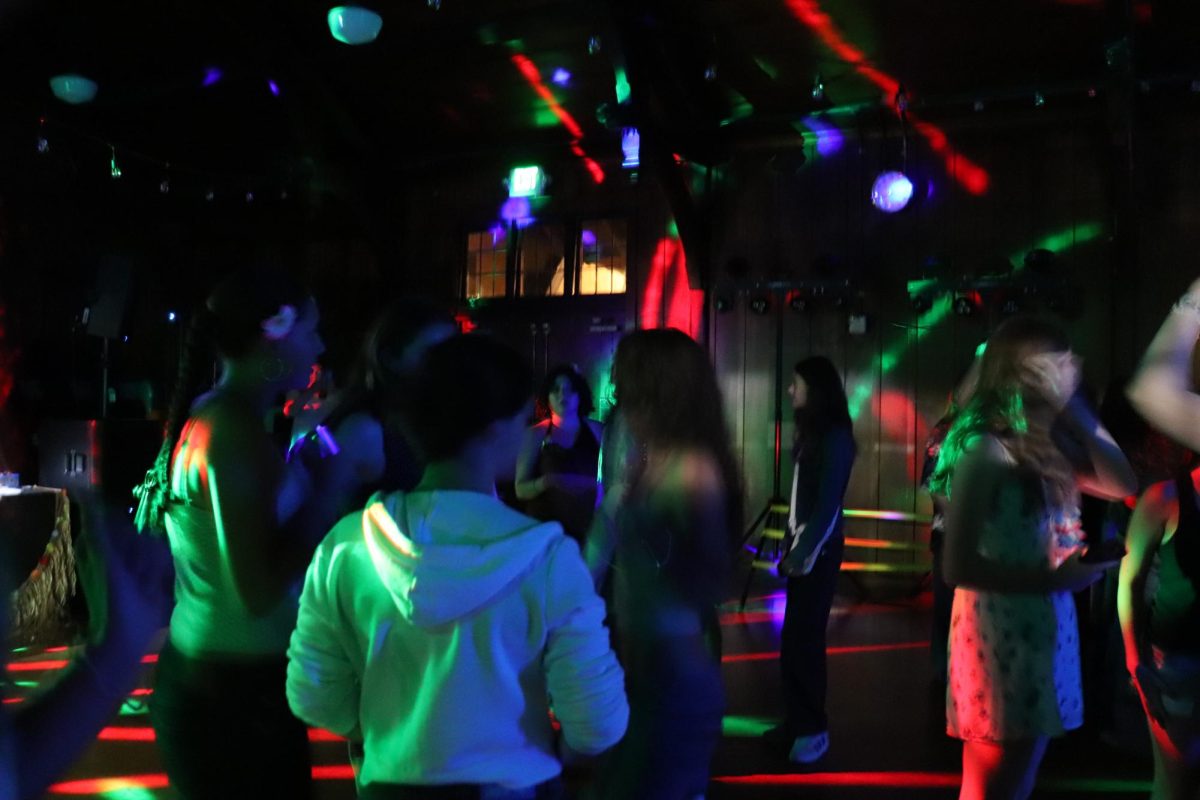
Jessica Vannasdall • May 1, 2025 at 6:13 am
It sounds like you’ve been on an amazing journey. Thank you for your vulnerability in sharing your process. What a huge accomplishment!
Isabella • Apr 30, 2025 at 9:50 pm
I am so excited to see this come to life, and I am so proud of you!
Brandon Kruhm • Apr 28, 2025 at 9:48 am
I’m so proud of you Valentina! (And you, too, Sydney!) Everyone come see this wonderful work in May!!!